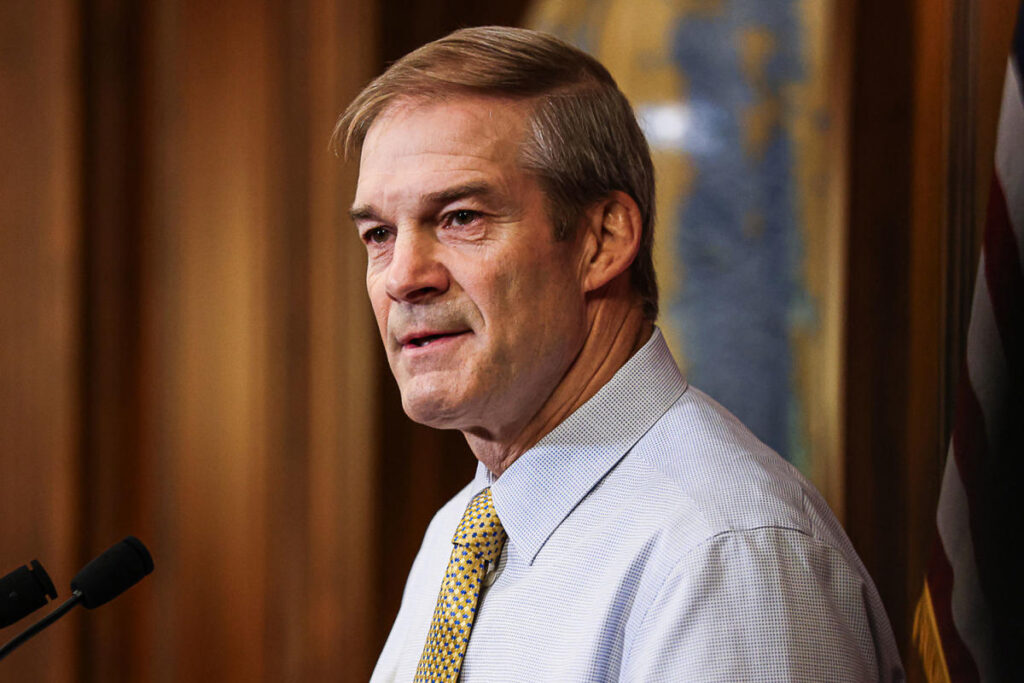Rep. Jim Jordan, the chair of the House Judiciary Committee, has indicated that he and other House Republicans are not ruling out any possible avenues for investigating special counsel Jack Smith. In a recent appearance on CNN’s “State of the Union,” Jordan emphasized the importance of obtaining facts surrounding the investigations related to Trump, especially since these investigations are nearing their conclusion. With Trump having been projected to win the presidential election following these investigations, Jordan and his colleagues want to ensure that everything related to the special counsel’s inquiries is preserved for oversight by Congress, which they see as part of their constitutional duties. He stated, “We want the facts,” highlighting their intention to pursue all means necessary to acquire relevant information.
In response to inquiries about whether he would call special counsel Jack Smith to testify, Jordan remained non-committal, implying that all options are on the table in terms of congressional inquiry. He refrained from confirming specific actions, indicating that the situation is fluid, and they await any reports that may come from Smith’s investigations. While Jordan’s comments underscore a more aggressive oversight posture from House Republicans, they also reflect a strategy of vigilance and readiness to respond as more information emerges about the conclusions drawn by Smith and the Justice Department.
In a formal step towards ensuring that relevant details are not lost, Jordan and fellow Republican Representative Barry Loudermilk sent a letter to Smith requesting that all records associated with the investigations concerning President Trump be preserved. Their concerns revolve around the possibility that the Office of Special Counsel might inadvertently or deliberately destroy records now that the investigations are winding down, which they believe could compromise Congress’s ability to execute its oversight functions. Jordan reiterated the purpose of their letter as a means to secure the facts, underscoring the urgency of retaining comprehensive documentation related to the investigations and subsequent charges.
The context of Jordan’s statements is significant given the precarious balance of power in the House, with several district races still in flux. The looming possibility of a Democratic majority in the House raises questions about Jordan’s future as chair of the committee, should that happen. Nonetheless, in the meantime, Jordan and his colleagues are poised to maximize their oversight authority and investigate the actions of Smith and the Justice Department regarding Trump’s election-related controversies. This strategy aligns with a broader Republican commitment to scrutiny of the Biden administration and its associates.
As events unfold with the conclusion of Smith’s investigations, Jordan must navigate a politically charged environment where the ramifications of any findings regarding Trump could significantly influence the future on Capitol Hill. He noted the significance of the results of the 2020 election, with Trump winning decisively against the backdrop of a criminal investigation into his attempts to overturn those results. The implications of the House Republicans’ strategy in relation to those findings will likely shape not only party dynamics but also public perception of Trump’s role in the events that transpired and how Congress addresses executive oversight moving forward.
Lastly, the Justice Department’s historical stance against prosecuting sitting presidents is a critical factor that complicates these proceedings. Drawn into this narrative is U.S. District Judge Tanya Chutkan’s decision to grant Smith time to formulate his approach to the conclusion of the investigation. The evolving situation presents a complex legal and political landscape where the interplay of electoral outcomes, oversight authority, and judicial decisions all contribute to the trajectory of the investigations into Trump. As the House Judiciary Committee continues to assert its responsibility to gather and review pertinent information, the pressure mounts to both clarify the legal boundaries surrounding the actions of a president and explore the implications of these investigations on future political accountability.

